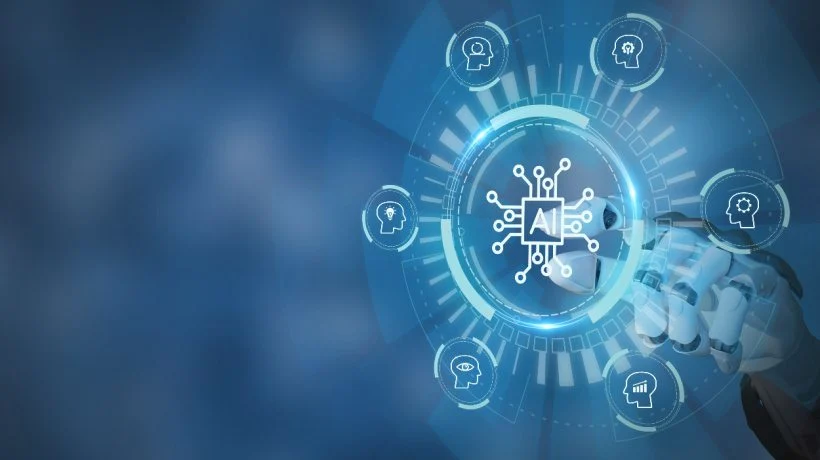Imagine a world where AI-powered assistants don’t just respond to your commands but anticipate your needs, understand your emotions, and seamlessly integrate into every aspect of your life. Sounds like science fiction? Well, the future Techprimex.co.uk is closer than you think! With advancements in artificial intelligence (AI) and machine learning, the evolution of these digital companions is set to revolutionize how we live, work, and interact with technology.
The Evolution of AI-Powered Assistants
The journey of AI assistants began with simple rule-based systems that could perform basic tasks like setting reminders or answering factual questions. Think back to the early days of Siri or Google Now. They were cool but limited.
Fast forward to today, and we have sophisticated virtual assistants like Alexa, Google Assistant, and Cortana that can control smart homes, manage schedules, and even crack a joke or two. But where do we go from here?
The Shift Towards Personalization
Personalization is the name of the game. Future AI-powered assistants will not just follow instructions; they’ll predict them. They’ll learn from your habits, preferences, and routines to offer tailor-made experiences. Imagine waking up to your assistant having already set the perfect room temperature, queued up your favorite playlist, and scheduled your day based on your energy levels.
Key Technologies Driving the Future of AI Assistants
Natural Language Processing (NLP) Enhancements
The future of AI assistants heavily relies on advancements in Natural Language Processing (NLP). NLP enables machines to understand, interpret, and respond to human language in a way that feels natural.
- Contextual Understanding: Future assistants will grasp the context better. For instance, if you say, “I’m feeling cold,” the assistant might suggest increasing the thermostat without needing explicit instructions.
- Emotion Detection: Integration of emotional intelligence will allow AI to detect your mood from your voice tone, offering more empathetic responses.
Integration with IoT Devices
The Internet of Things (IoT) is the bridge that connects AI to the physical world. Imagine an assistant that not only controls your lights but also interacts with your fridge to suggest meals based on available ingredients.
- Smart Home Automation: AI will manage entire households effortlessly.
- Predictive Maintenance: Your assistant might alert you when your car needs servicing before it even breaks down.
Machine Learning (ML) Algorithms
With machine learning, AI assistants can learn from data over time. This means they get smarter with every interaction.
- Adaptive Learning: Your AI will refine its responses based on your feedback.
- Behavior Prediction: Over time, it might predict when you need a coffee break or remind you to take a walk after long work hours.
The Role of AI Assistants in Different Sectors
Healthcare
In healthcare, AI-powered assistants could revolutionize patient care:
- Virtual Health Coaches: Offering personalized health advice.
- Remote Monitoring: Tracking patient vitals and alerting doctors in emergencies.
Business and Productivity
For professionals, AI assistants are becoming indispensable:
- Automating Repetitive Tasks: Scheduling meetings, sending emails, and more.
- Data Analysis: Providing insights from large datasets, helping in decision-making.
Education
Imagine students having personal AI tutors:
- Customized Learning Plans: Adapting lessons based on the student’s pace.
- Instant Doubt Resolution: Available 24/7 to answer questions.
Challenges and Ethical Considerations
While the future looks bright, there are challenges to consider:
Privacy Concerns
- Data Security: With assistants collecting vast amounts of personal data, ensuring its security is paramount.
- User Consent: Clear policies on data usage are essential.
Dependence on Technology
- Over-Reliance: There’s a risk of people becoming too dependent on AI, impacting critical thinking skills.
- Job Displacement: Automation could replace certain jobs, necessitating workforce reskilling.
Step-by-Step Guide: How to Adapt to the AI-Powered Future
- Stay Informed: Keep up with the latest developments in AI technology.
- Embrace Continuous Learning: Upskill to stay relevant in an AI-driven world.
- Adopt AI Tools: Integrate AI assistants into your daily life to boost productivity.
- Prioritize Privacy: Be mindful of the data you share and understand privacy settings.
Wind Up
Imagine an AI that doesn’t just respond to your words but understands your unspoken needs. A future where your digital assistant is more than just a tool—it’s a trusted companion. From smart homes to smart cities, AI-powered assistants will be at the heart of it all.

